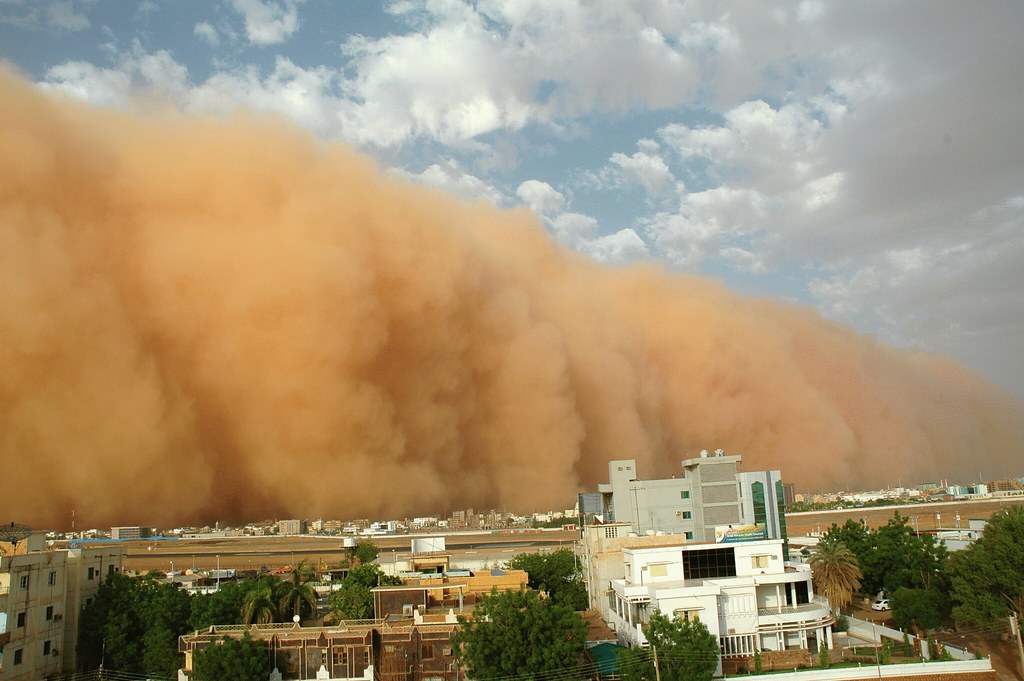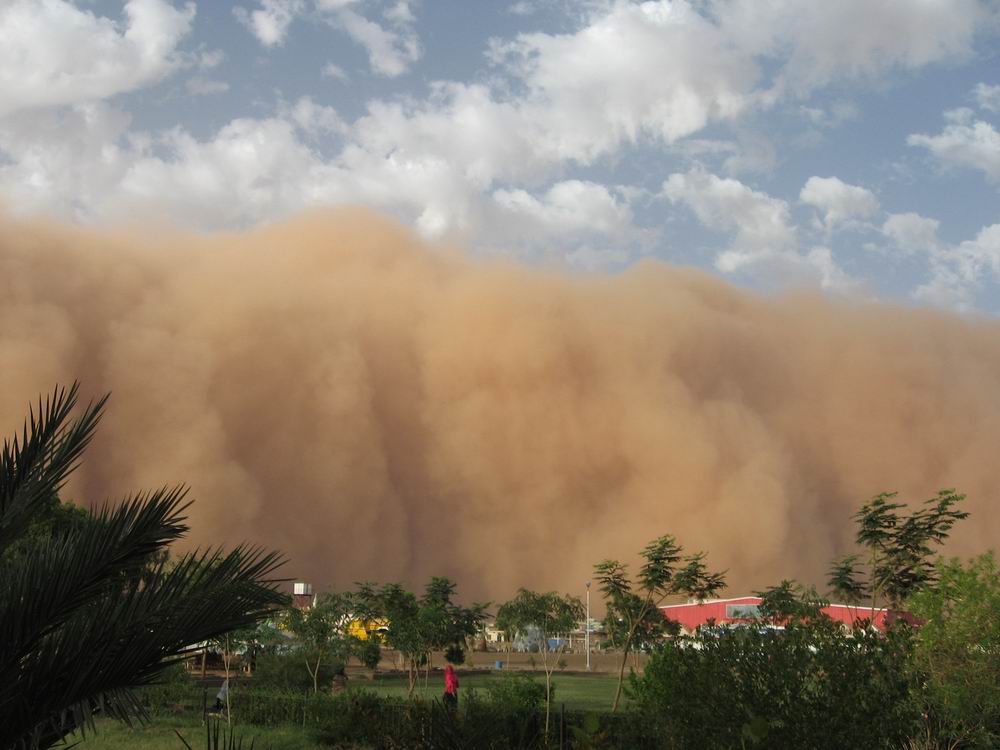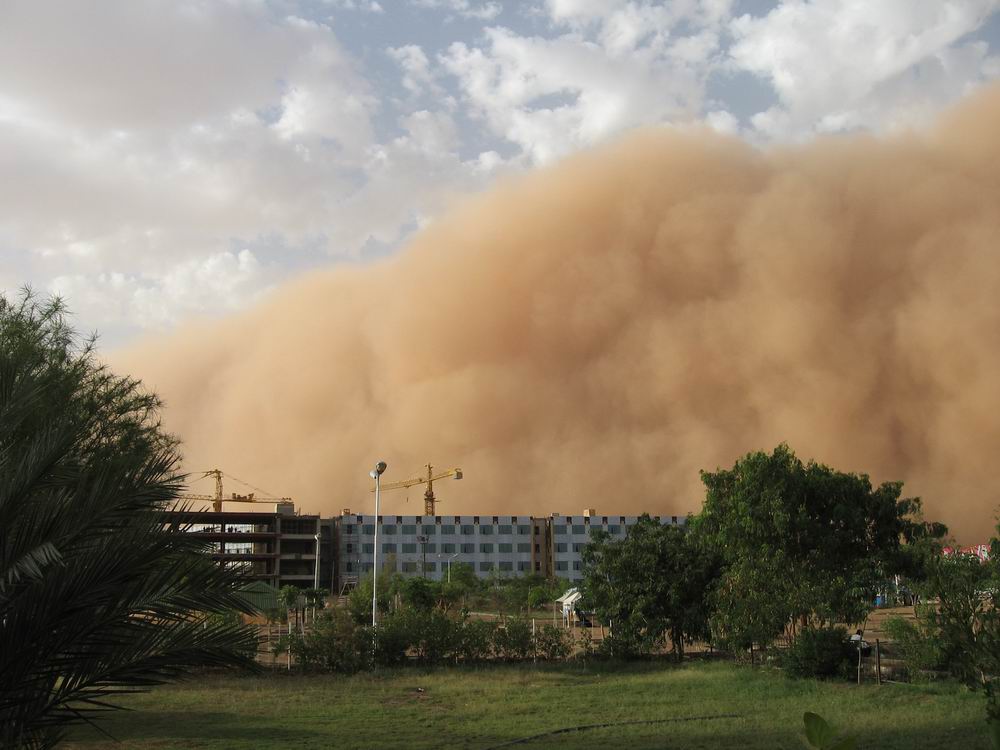
KHARTOUM-UMM DURMANN, SUDAN - City of Mujahideen
Moderators: Moderators, Junior Moderators
Forum rules
This General Forum is for general discussions from daily chitchat to more serious discussions among Somalinet Forums members. Please do not use it as your Personal Message center (PM). If you want to contact a particular person or a group of people, please use the PM feature. If you want to contact the moderators, pls PM them. If you insist leaving a public message for the mods or other members, it will be deleted.
This General Forum is for general discussions from daily chitchat to more serious discussions among Somalinet Forums members. Please do not use it as your Personal Message center (PM). If you want to contact a particular person or a group of people, please use the PM feature. If you want to contact the moderators, pls PM them. If you insist leaving a public message for the mods or other members, it will be deleted.
-
paidmonk
- SomaliNet Super

- Posts: 11989
- Joined: Wed Dec 31, 1969 7:00 pm
- Location: http://majerteen.blogspot.com/
- nomadicwarlord
- SomaliNet Super

- Posts: 5946
- Joined: Wed Aug 27, 2008 1:56 am
- Location: Ayaan Hirsi's guest room
Re: KHARTOUM-UMM DURMANN, SUDAN - City of Mujahideen
River Nile gives the city a beautiful look.
- Somalian_Boqor
- SomaliNet Super

- Posts: 10847
- Joined: Thu Feb 15, 2007 2:56 am
- Location: Fuck Faroole & His Supporters
Re: KHARTOUM-UMM DURMANN, SUDAN - City of Mujahideen
KHARTOUM a true African city. One little city shines while the rest of the Country and Population live under huts and live off United Nations hand outs.

^^^ Sudan

^^^ Sudan
- Keyse_0208
- SomaliNet Super

- Posts: 9898
- Joined: Thu Apr 10, 2008 11:42 am
- Location: L D N
- Contact:
Re: KHARTOUM-UMM DURMANN, SUDAN - City of Mujahideen
My favorite african city, without the usual sandstorm






-
ina aadan
- SomaliNet Heavyweight

- Posts: 3629
- Joined: Wed Mar 18, 2009 10:44 am
- Location: Inta Dahare Doolliyo Dohiyo, Diggi u hoosayso
Re: KHARTOUM-UMM DURMANN, SUDAN - City of Mujahideen
Waa magaaladeeKeyse_0208 wrote:My favorite african city, without the usual sandstorm
- Keyse_0208
- SomaliNet Super

- Posts: 9898
- Joined: Thu Apr 10, 2008 11:42 am
- Location: L D N
- Contact:
Re: KHARTOUM-UMM DURMANN, SUDAN - City of Mujahideen
dee waa Khartoum
-
paidmonk
- SomaliNet Super

- Posts: 11989
- Joined: Wed Dec 31, 1969 7:00 pm
- Location: http://majerteen.blogspot.com/
Re: KHARTOUM-UMM DURMANN, SUDAN - City of Mujahideen
Somalian-IDIOT - do you know what Southern Sudanese AKA Dinka think about Somalis? They think we are a bigger threat to them than the Arab Sudanese!!
God bless Khartoum, God bless Al-Bashir, God Bless the Islamic Republic of Sudan!!
The South made itself a mess, period, just like Somalia. Not anyone's fault.
Somalian-IDIOT, North Sudan is beautiful. You should see other North Sudanese cities like Port Sudan, Kassala, and Merowe.
Below is the FOURTH largest North Sudanese city, Merowe, the most ancient and preserved Nubian city, taking part in the biggest African project in history, the Merowe Dam.













God bless Khartoum, God bless Al-Bashir, God Bless the Islamic Republic of Sudan!!
The South made itself a mess, period, just like Somalia. Not anyone's fault.
Somalian-IDIOT, North Sudan is beautiful. You should see other North Sudanese cities like Port Sudan, Kassala, and Merowe.
Below is the FOURTH largest North Sudanese city, Merowe, the most ancient and preserved Nubian city, taking part in the biggest African project in history, the Merowe Dam.













-
The Nomad
- SomaliNet Heavyweight

- Posts: 3532
- Joined: Tue Jul 14, 2009 2:51 pm
- Location: Las Qoray, Erigabo, Hadaftimo, Dhahar, Xingalol, Gelewiyt, Celaayo, Djibouti, Harena.
Re: KHARTOUM-UMM DURMANN, SUDAN - City of Mujahideen
Masha'allah! Even with their own version of Irir holding them back, the North Sudanese were still able to transform their country into the miracle of Africa. 
Re: KHARTOUM-UMM DURMANN, SUDAN - City of Mujahideen
Arab sudanese have a sad future ahead
The UN will try to arrest Al-bashir and he will resist
the jareer militias from chad, darfur and south sudan backed by the USA will crush the arab regime
and storm the beautyful khartoum and commit rape and massacre like the earth has never witnessed
The UN will try to arrest Al-bashir and he will resist
the jareer militias from chad, darfur and south sudan backed by the USA will crush the arab regime
and storm the beautyful khartoum and commit rape and massacre like the earth has never witnessed
Re: KHARTOUM-UMM DURMANN, SUDAN - City of Mujahideen
skinny arab sudan man cant face a 6'8 jareer dinka 
sub-arabian
sub-arabian
- Grant
- SomaliNet Super

- Posts: 5845
- Joined: Mon Jun 13, 2005 1:43 pm
- Location: Wherever you go, there you are.
Re: KHARTOUM-UMM DURMANN, SUDAN - City of Mujahideen
The development projects are funded with outside donations and loans, all of which are in arrears. Sudan remains a net-importer of food. The South will be the subject of a referendum in 2011, which will likely halve the size of the country. Darfur remains an issue, and could conceiveably become autonomous.
Without oil, the Sudan has no net export economy and will have no means of repaying it's loans:
http://open-site.org/Regional/Africa/Su ... my/Economy
"Sudan produces about 312,000 barrels per day (b/d) of oil, which brought in about $1.9 billion in 2003 and provides 70% of the country’s total export earnings. These earnings could rise to an estimated $2 billion by the end of 2004. The oil production is expected to reach 500,000 barrels by 2005. However, without a swift resolution of its 20-year civil war, the country and its people will continue to reap little benefit from its natural resources, its infrastructure will continue to deteriorate, oil production and exports will at best remain stagnant in the next few years, and Sudan will never be able to attain its export and development potential.
In 2000-01 Sudan’s current account entered surplus for the first time since independence. In 1993, currency controls were imposed, making it illegal to possess foreign exchange without approval. In 1999, liberalization of foreign exchange markets ameliorated this constraint somewhat. Exports other than oil are largely stagnant. However, the small industrial sector remains in the doldrums, spending for the war continues to preempt other social investments, and Sudan’s inadequate and declining infrastructure inhibits economic growth. "
Without oil, the Sudan has no net export economy and will have no means of repaying it's loans:
http://open-site.org/Regional/Africa/Su ... my/Economy
"Sudan produces about 312,000 barrels per day (b/d) of oil, which brought in about $1.9 billion in 2003 and provides 70% of the country’s total export earnings. These earnings could rise to an estimated $2 billion by the end of 2004. The oil production is expected to reach 500,000 barrels by 2005. However, without a swift resolution of its 20-year civil war, the country and its people will continue to reap little benefit from its natural resources, its infrastructure will continue to deteriorate, oil production and exports will at best remain stagnant in the next few years, and Sudan will never be able to attain its export and development potential.
In 2000-01 Sudan’s current account entered surplus for the first time since independence. In 1993, currency controls were imposed, making it illegal to possess foreign exchange without approval. In 1999, liberalization of foreign exchange markets ameliorated this constraint somewhat. Exports other than oil are largely stagnant. However, the small industrial sector remains in the doldrums, spending for the war continues to preempt other social investments, and Sudan’s inadequate and declining infrastructure inhibits economic growth. "
-
The Nomad
- SomaliNet Heavyweight

- Posts: 3532
- Joined: Tue Jul 14, 2009 2:51 pm
- Location: Las Qoray, Erigabo, Hadaftimo, Dhahar, Xingalol, Gelewiyt, Celaayo, Djibouti, Harena.
Re: KHARTOUM-UMM DURMANN, SUDAN - City of Mujahideen
Jareerboi wrote:Arab sudanese have a sad future ahead
The UN will try to arrest Al-bashir and he will resist
the jareer militias from chad, darfur and south sudan backed by the USA will crush the arab regime
and storm the beautyful khartoum and commit rape and massacre like the earth has never witnessed
Re: KHARTOUM-UMM DURMANN, SUDAN - City of Mujahideen
Jareerboi wrote:Arab sudanese have a sad future ahead
The UN will try to arrest Al-bashir and he will resist
the jareer militias from chad, darfur and south sudan backed by the USA will crush the arab regime
and storm the beautyful khartoum and commit rape and massacre like the earth has never witnessed
Never laughed so hard before
-
- Similar Topics
- Replies
- Views
- Last post
-
- 19 Replies
- 1902 Views
-
Last post by Monk-of-Mogadishu
-
- 0 Replies
- 714 Views
-
Last post by Khalid Ali
-
- 0 Replies
- 539 Views
-
Last post by CoolPoisons
-
- 4 Replies
- 582 Views
-
Last post by KingMX
-
- 32 Replies
- 2393 Views
-
Last post by Gedo_Boy
-
- 49 Replies
- 3024 Views
-
Last post by Haddad
-
- 26 Replies
- 3348 Views
-
Last post by musika man
-
- 1 Replies
- 1595 Views
-
Last post by qoraxeey
-
- 23 Replies
- 1358 Views
-
Last post by FAH1223


